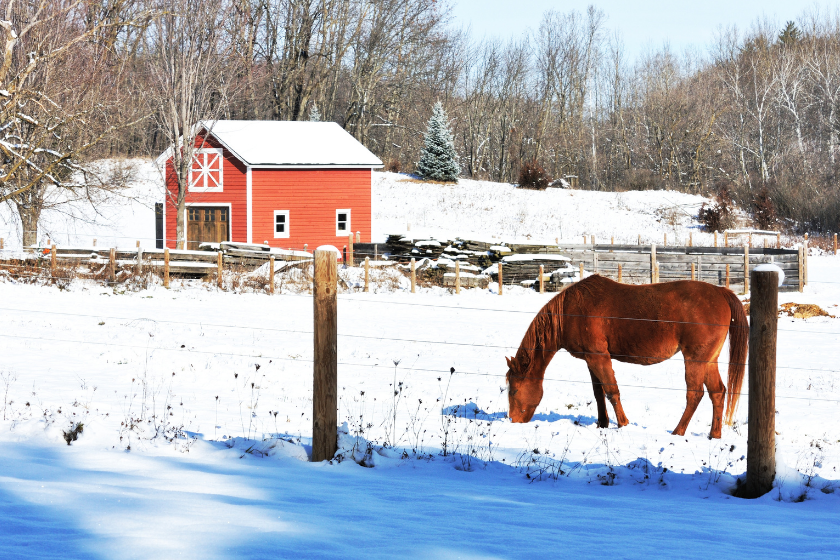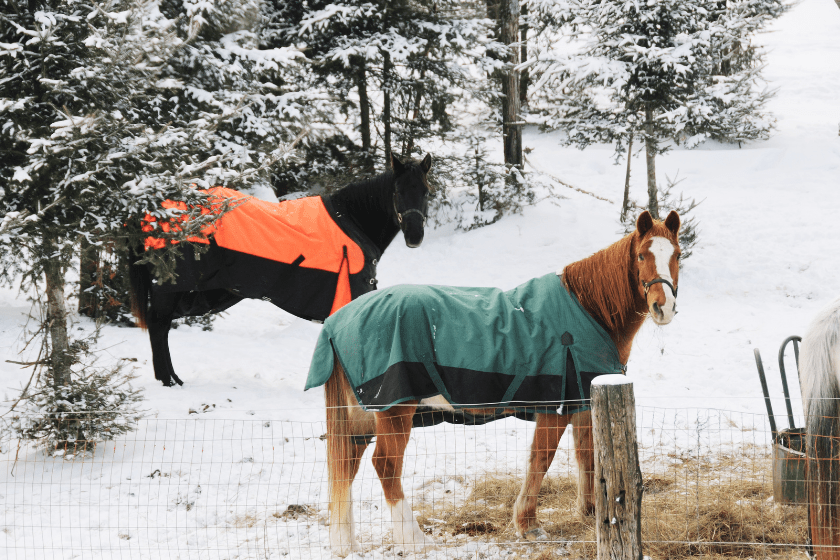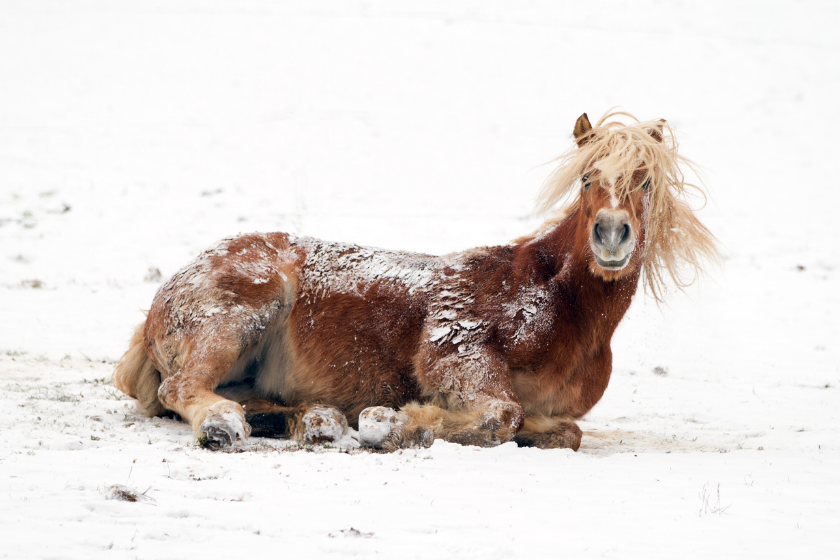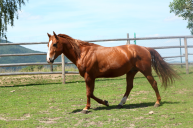With winter coming, how much cold can horses tolerate?
Even novice horse owners know that horse systems are very sensitive. The slightest temperature or humidity change can cause things like colic and other health concerns to pop up. With horses, health problems generally lead to costly vet bills. So as cold weather sets in, how much cold can horses tolerate before horse owners need to worry?
What Is the Ideal Temperature for a Horse?

Various factors determine the average temperature a horse can handle. Generally, horses can handle cold temperatures, especially if they are already used to colder climates. However, horses that live in warmer climates do not do well when cold weather hits and require different horse care than those used to cooler weather conditions.
1. Body Condition Score
A horse's health is judged by its body condition score on a scale of 1-9. It takes into account their body weight and body fat. For example, a horse with a mid-range score of six will fair better in the winter than a horse with a score of 3, which is a thin horse—being thin hinders a horse's ability to regulate its body temperature, leaving them exposed to the elements.
2. Horse's Coat
When the weather shifts during the winter months, horses develop their winter hair coat. Clipped horses can not withstand colder temperatures and those with longer coats. Horses' hair will help regulate their body temperature and keep them warm. Wild horses develop thicker coats in the winter to keep their bodies warm and protect them from the elements.
3. Age
Adult horses can handle cold weather much better than foals and senior horses. As a horse gets older, they need to have a pre-season check from a vet, to make sure they are ready for the change in weather. A healthy horse will be able to handle temperatures better.
4. Food and Water Intake
A horse's food and water intake affect their lower critical temperature, affecting how well they do in the winter weather. If they drink less than their needed water requirement, they will begin to eat less. Eating and drinking less will lead to horses not maintaining their proper body heat. Fermentation of grass and hay helps horses stay warmer. However, proper water consumption is equally important. Not drinking enough can also lead to colic impaction. Make sure to offer your horse plenty of warm water, which should get them drinking.
Can Horses Handle Extreme Cold?
RELATED: 15 Horse Hacks That Prove Horseback Riders Are Genius
When inclement weather hits, horses need shelter, even with their winter coat. However, when sleet and snow hit, something like a one-sided shed can keep the wet weather off of them, and it offers some protection. A healthy horse can withstand temperatures down to 18 degrees Fahrenheit if they do not have a shelter, while those with shelter can be in winter weather down to -40 degrees. A windbreak can give them just enough cover to stay warm and dry.
Do Horses Really Need Blankets?

When you drive past stables and farms, you often see horses with blankets on their backs as the temperature drops. However, horse owners should not place blankets on their horses until they get their winter coats. Blankets should be adjusted daily so rub marks do not appear on the horse's body. Moving the blanket around also ensures that the horse is dry underneath.
How do you prepare your horses for winter? Tell us on our Wide Open Pets Facebook page.





